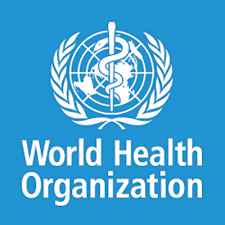The World Health Organization (WHO) has released the first-ever report on the pipeline of the vaccines currently in development, to prevent infections caused by Antimicrobial-Resistant (AMR) bacterial pathogens.
A statement issued by the organization on Tuesday said the analysis pointed to the need to accelerate trials for AMR related vaccines in late-stage development and maximise the use of existing vaccines.
According to the report, the silent pandemic of antimicrobial resistance is of major growing public health concern.
“Resistant bacterial infections alone are associated with nearly 4.95 million deaths per year, with 1.27 million deaths directly attributed to AMR.
“But AMR is about more than bacterial infections. AMR occurs when bacteria, viruses, fungi and parasites change over time and no longer respond to medicines.
“When an individual becomes infected with these microbes, the infection is said to be resistant to antimicrobial medicines. These infections are often difficult to treat,” it said.
The statement said the vaccines were powerful tools to prevent infections in the first place, and therefore had the potential to curb the spread of AMR infections.
It said that the AMR vaccine pipeline report aimed to guide investments and research into feasible vaccines to mitigate AMR.
It said the analysis identified 61 vaccine candidates in various stages of clinical development.
According to the statement, it includes several in late stages of development to address diseases listed on the bacterial priority pathogens, which WHO had prioritised for research and development.
It said the report described the late-stage vaccine candidates as having a high development feasibility while the report cautioned that most would not be available anytime soon.
Dr Hanan Balkhy, WHO Assistant Director-General, Antimicrobial Resistance, said “preventing infections, using vaccination, reduces the use of antibiotics, which is one of the main drivers of AMR.
“Yet of the top six bacterial pathogens responsible for deaths due to AMR, only one, Pnuemoccocal disease (Streptococcus pneumoniae) has a vaccine”.
Ht stated that affordable and equitable access to life-saving vaccines such as those against pneumococcus, were urgently needed to save lives, and mitigate the rise of AMR.
The report calls for equitable and global access to the vaccines that already existed, especially among populations that needed them most in limited-resource settings.
It said that there were already vaccines available against four priority bacterial pathogens: pneumococcal disease (Streptococcus pneumoniae), Hib (Haemophilus influenzae type b) Tuberculosis (mycobacterium tuberculosis) and Typhoid fever (Salmonella Typhi).
It said that the remaining three vaccines were effective and needed to increase the number of people receiving them to contribute to a reduction in the use of antibiotics and prevent further deaths.
“Of significance in the global fight against AMR, the bacteria noted in the priority pathogens list pose a significant threat to public health.
“Precisely because of their resistance to antibiotics but they currently have a very weak vaccine pipeline in terms of the number of candidates and feasibility.
Dr Haileyesus Getahun, WHO Director of AMR Global CoordinationDepartment, said the lessons from Covid 19 vaccine development and MRNA vaccines offered unique opportunities to explore for developing vaccines against bacteria.
He said that the report examined some of the challenges facing vaccine innovation and development, including for pathogens associated with hospital-acquired infections (HAI).
Dr Kate O’Brien, Director Immunization, Vaccines and Biologicals Department, WHO, said vaccine development was expensive and scientifically challenging.
“We have to leverage the lessons of COVID vaccine development and speed up our search for vaccines to address AMR.” She said. (NAN)
